by Elisa Giudici
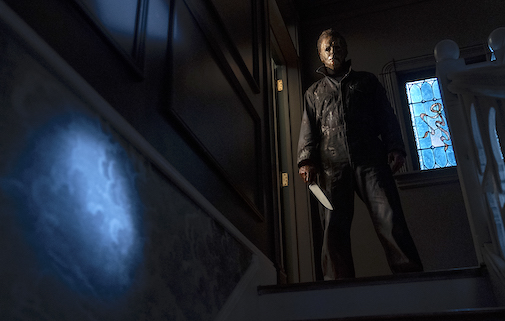 Michael Myers is back in "Halloween Kills"
Michael Myers is back in "Halloween Kills"
Final day! I hope you are ready because in this entry I am going to cover all the movies I saw in the last two days of the Venice Film Festival. Eight movies, from European arthouse cinema to Hollywood blockbusters, with some solid performances, an instant cult, and the only major disappointment of this incredible edition of the Mostra.
I'll try to keep it short because of the lack of sleep. An inside joke between my roommate and me this year was that the Filipino movie with its 208 minutes of length lasted longer than our typical night of sleep in the last two weeks...
Halloween Kills (David Gordon Green)
I am so annoyed about this slasher, the second chapter in the new Halloween trilogy. The series is trying to evolve the nature of Michael Myers, and be a political commentary on contemporary Amerca but it's filled with stupididty. Listen, I know that characters behaving dumbly is a tradition in horror movies but how can you be serious in dealing with trauma Myers inflicted about an entire city with this going on. Halloween Kills mixes a few good ideas (and a lot of callbacks from the earliest movies) with cheap choices in a way I found confusing; How can you be so clearly affectionate to the series, wanting to revamp it for the new generations in the best way possible and at the same time being so lazy in other passages?
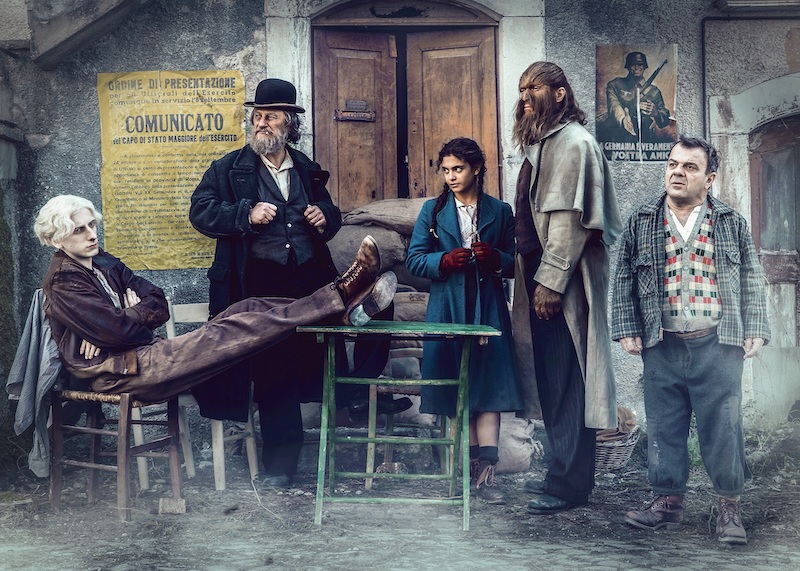
Freaks Out (Gabriele Mainetti)
This one surprised me in the best way possible and I'm curious to see what international and American audiences, in particular, will think of the first, It's the most authentic Italian blockbuster in a very long time. Freaks Out costs around 13 million euros which sounds cheap compared to the major budget for tentpole movies, but is an enormous amount of money for an Italian movie. In some ways it's the Italian Dune: a very risky, expensive genre movie that was postponed multiple times. Mainetti worked for so long on this one that when he cast one the female in Freaks Out she was 14 and now when the movie premieres she's 20.
According to the press conference all this ambition, time, and money were used to shot and edit "a neorealistic version of Guardian of the Galaxy, where The Wizard of Oz met De Sica and Rossellini". Freaks Out follows a small circus of five artists in the open city of Rome, during 1943. While Nazis storm the capital and pack trains with the remaining Jews they were able to capture, four young freaks with incredible superpowers try to find their place in a city at war, where "humans are monsters and monsters are humans". If it sounds simple, well, it is because Freaks Out works on simplicity the very same way Steven Spielberg (another clear inspiration here) did in the '90s. It is a huge production that combines the blockbuster aspiration of inspiring wonder in its audience with an attitude that is very typical of Rome. I can not guess how much of this will be lost in translation for those who can't hear the Rome accent or see the irony here, but what I can say for sure is that Gabriele Mainetti is doing something no one else in Italy has the ambition to do: making genre movies enjoyable for the general audience on a scale no one dares to dream anymore. The special effects are just incredible for a European production.
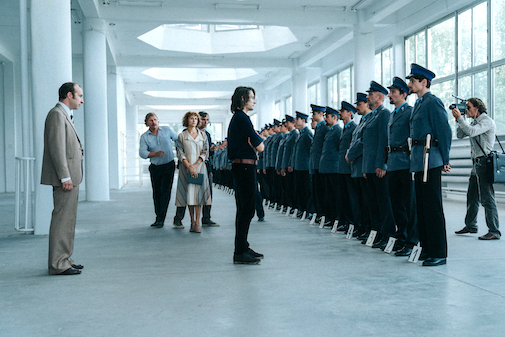
Żeby nie było śladów / Leave No Trace (Jan P. Matuszynski)
This is Poland's Oscar submission this year. In 1983 the young son of human rights activists of the Solidarność movement is arrested with his friend and beat so severely by the Militia that he dies a couple of days later. Leave No Trace is the reconstruction of these real events with a lot of fictional guessing due to the lack of an official, reliable version of what happened. Legally speaking, the lawsuit never recognized the militia's responsibility for this hideous crime due to statue of limitations, so Matuszynski decides to tell the story of how Jurek Popiel (Tomasz Zietek), the only witness of the beating, has to face an infinite amount of pressure from Intelligent Service and Militia itself before and during the judicial proceedings, attempting to make him withdraw for fear for his life and his family's. Leave no trace spotlights a terrible story of how the Polish judicial system was -- and is suggested still is -- permeable to political interests. Unfortunately it's so didactic in dividing the good guys from the bad guys within a complex system that I was not entirely convinced by it.
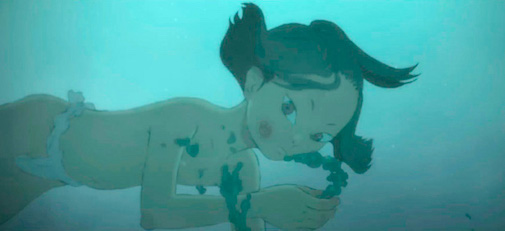
Inu-Oh by Masaaki Yuasa
Loved it! I really wish the festival had placed this anime in the main competition because it deserved a spot. It is by far one of the most innovative, and poetic movies at the fest. I would probably describe this film as a rock opera about the birth of Noh Theatre in Japan, a story told as a folklorie tale full of strange creatures and demons, connected to the legendary defeat of the Heike clan by Genji. There are also precious, cursed treasures on the bottom of the ocean waiting to be found. Masaaki Yuasa has a gift for finding unexpected visual solutions: I have seen my good share of anime, yet his work in animation still felt experimental and surprising. I really loved how the soundtrack mixes classic tunes and instruments from Japanese musical tradition to contemporary electronic and rock sonorities. Shout out to the very intriguing character design too!
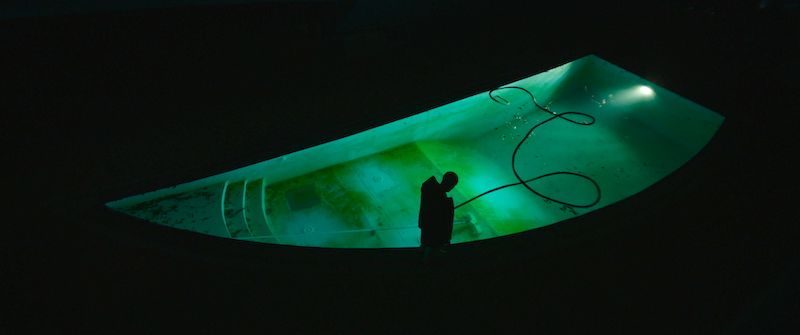
America Latina (Damiano and Fabio D'Innocenzo)
After Bad Tales (2020), the D'Innocenzo brothers were raised up immediately in the Italian cinema pantheon, but this is not the kind of movie you make to confirm expectations about you. America Latina felt outdated in its topic, rushed in the writing, and smug in execution: the worst possible combination. It is a sort of mind game in which a dentist finds something really unexpected and shocking in his basement and decides, against all odds, to keep the secret while trying to understand who put him in this situation. I feel sorry for the very talented actor Elio Germano who tries to save this mess. The only good thing about America Latina is the mansion in which it was shot: a strange architectural monster that looks like a mistake but is perfect for the atmosphere the film is trying to conjure.
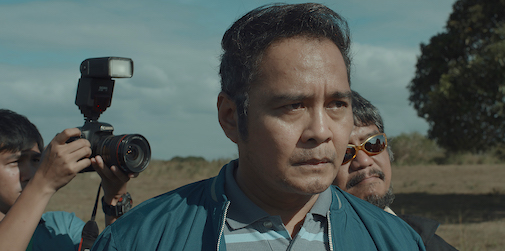
On the Job: The Missing 8 (Erik Matti)
When the movie gets tough, the tough get going: only the bravest critics decided to face the 208 minute challenge of the Filippino movie in the final days of Venice when everyone was beyond tired. I presumed it would be slow-paced, given the length but Matti proved my expectations wrong. The Missing 8 is so much (sometimes too much) of everything. The story is really intricate, the direction hyperdynamic, the dialogue fast-paced and the action scenes filled with brutal realism. At times, I felt exhausted trying to keep up with it. Still I liked it and I wish I were able to see it in a different circumstances (not at the end of a fest) to really appreciate this story about the mystery of 8 missing people in La Paz. The movie follows the attempt to find the truth with a journalistic investigation in a city in which corruption and bad politics make that extremely dangerous. The main protagonist is a morally ambiguous deejay and a former enthusiastic supporter of the mayor of the city. One of the missing people is his brother, an impartial journalist who warned him about the true nature of his idol before vanishing. The camera is unable to stand still: it always moves between people, around protagonists, in scenes so dynamic and fluid and long that I continuously wondered how many takes it took Matti to make this work. A challenging running time but worth the watch.

The Last Duel (Ridley Scott)
Sexual consent in the 1386's France. It's a place and time in which a duel will have legal value in determining who is lying and who is telling the truth. Based on real events, The Last Duel might have been such a strong movie ten or even five years ago. Today it plays like an attempt to test the marketability of the #MeToo movement. The movie is quite long (152 minutes) because it coversthree competing versions of the same story: one in which a loving husband is betrayed by his former friend, one in which the accused man claims the married woman is in love with him, and the perspective of the noble-born woman living in a world of men who refuses to be silenced.
I am not an expert in the Middle Ages, but the dialogue here felt far too anachronistic. Jodie Comer's Marguerite de Carrouges has lines that sound more like tweets of modern women rights activists than the words a lady of that time would use to describe a rape. I caught myself thinking more than once: "Would Middle Age knights and ladies use this kind of language repeatedly before the King of France? (The girls of 1960s France in L'Evenement couldn't even say the word "abortion" to their closest friends)
I think the movie is good but perhaps in the wrong way. As a historical movie packed with battles between knights ending with a long, brutal, breath-taking duel between Matt Damon and Adam Driver it's fast-paced, and well made. Ridley Scott knows his trade for sure. Yet...this was not supposed to be the main point, right? The whole discourse about rape felt like an honest (if unconvincing) attempt to make more of a thematic drama. Adam Driver and Jodie Comer are believable as people in the Middle Ages while bleached hair Ben Affleck and mullet-haired, Matt Damon...are, well, not.